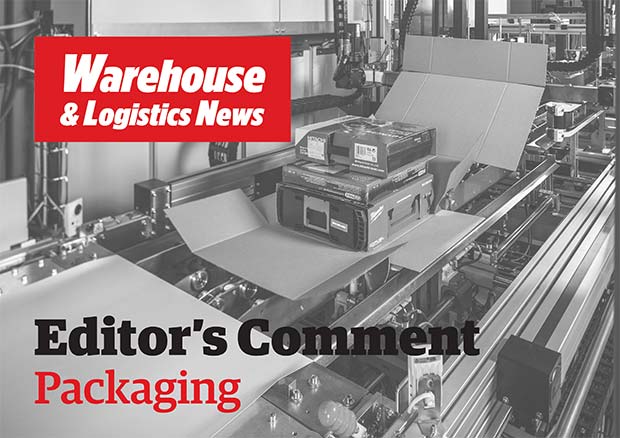Packaging companies have found themselves on the front line in these troubling times. Some have struggled while others have flourished, generally depending on whether their products are considered essential or not. Packing firms which have switched production lines quickly in response to the demand for hand sanitiser and other antibacterial products have kept busy, illustrating the importance of flexibility.
This article was first published in the July 15th 2020 issue of Warehouse & Logistics News, subscribe to the magazine by clicking here.
 Southgate Packing has already packaged and despatched over 5 million test kit bags for testing NHS staff for Covid-19 since the start of the pandemic and continues to issue approximately 100,000 tests a week. Southgate designed the self-seal bag for the testing kits so that once the test is complete the bag can be resealed to minimise excessive handling. As well as packaging the Covid-19 testing kits, Southgate has increased its portfolio of sanitisation and wellness products.
Southgate Packing has already packaged and despatched over 5 million test kit bags for testing NHS staff for Covid-19 since the start of the pandemic and continues to issue approximately 100,000 tests a week. Southgate designed the self-seal bag for the testing kits so that once the test is complete the bag can be resealed to minimise excessive handling. As well as packaging the Covid-19 testing kits, Southgate has increased its portfolio of sanitisation and wellness products.
Storopack has reported that it has maintained a secure position despite the crisis, thanks to a stable revenue. A broad customer and product portfolio and a global presence represent advantages, particularly in times of crisis. In some countries, packaging manufacturers are classed as key firms and therefore have to maintain delivery capability during the coronavirus crisis. When it comes to goods that are urgently needed at the current time, Storopack offers a vast array of protective packaging solutions – ranging from the medical and food sectors to the online sale of everyday items.
Jemac Packaging’s new webinar series will provide actionable steps to remove costs from the pallet wrapping operation. The series starts in early August, and will share top tips on how to achieve the best results from the pallet wrapping operation.
Following detailed conversations with the National Exhibition Centre (NEC), and in the interests of health and safety for all concerned, the PPMA has taken the decision to postpone this year’s PPMA Show until 2021 (28-30 September). A statement said the decision had not been taken lightly, with the PPMA considering the implications for visitors and exhibitors in respect of everything from social distancing, availability of hotels, travel and the preparation time required.
Well designed and considered returns packaging can save businesses from the damaging impact of returning goods on business profits and the environment. Product returns are a thorn in the side of most retailers, and it’s not surprising when one considers that returns rates for online orders stand at a staggering 25% according to Paazl. To avoid compounding the problem by inadequate packaging leading to re-saleable goods being damaged on the return leg, Antalis’s Jason Poxon, Packaging Technologist, says businesses need to look more carefully at their packaging choices. Although more and more businesses are giving serious consideration to their packaging from an aesthetic and environmental point of view, returns aren’t always part of that thinking.
It has been great to see the packaging industry rallying round to serve the greater good during these trying times




Comments are closed.